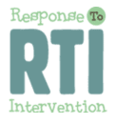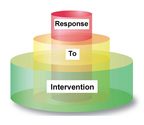-
About
- About Listly
- Community & Support
- Howto
- Chrome Extension
- Bookmarklet
- WordPress Plugin
- Listly Premium
- Privacy
- Terms
- DMCA Copyright
- © 2010-2025 Boomy Labs


 Heidi Veal
Heidi Veal
Listly by Heidi Veal
Here is a list of multiple professional development and learning opportunities for developing a deeper understanding of the RtI process and implementing it with increasing fidelity. Several of the PD's listed here are uniquely designed to target the unique needs of diverse student communities.

The National Center for Culturally Responsive Educational Systems (NCCRESt) provides technical assistance and professional development to close the achievement gap between students from culturally and linguistically diverse backgrounds and their peers, and reduce inappropriate referrals to special education. The project targets improvements in culturally responsive practices, early intervention, literacy, and positive behavioral supports.

The formal incorporation of RTI models in the 2004 reauthorization of the Individuals with Disabilities in Education Act signaled a major change in the approaches that schools may use to identify students as eligible for special education in the learning disability (LD) category. In this webcast, Drs. Don Deshler, Jack Fletcher and Rick Wagner provide information and answer your questions about using RTI to help students with LD.

A multi-tier system of supports that uses students’ response to intervention to determine progress and to inform instructional decisions requires that the instruction and interventions that are delivered be implemented with high degrees of fidelity to achieve meaningful student outcomes. Fidelity of implementation or “treatment integrity” is a critical element of the RtI process. Dr. Christina Marco-Fies answered your questions about how to determine the level of treatment integrity to ensure an intervention is implemented as planned, intended, or originally designed.

Choose from among a list of Web-based training opportunities, both archived and upcoming, to develop your skills and increase your knowledge of effective RTI practices. Ongoing professional development is essential across school personnel to ensure that RTI is implemented with fidelity.

The module reviews the research on effective practices for providing literacy instruction to English language learners (ELL) and how these practices can be applied within the RTI framework. The module includes activities that will help teams consider what actions steps they should take in their school or district to improve literacy instruction for ELLs.

The Response-to-Intervention (RTI) model is a pledge to address individual student needs and improve the outcomes of students who struggle with learning to read, especially language minority students.

Readers will find a collection of articles addressing many aspects of working with diverse student populations.

In the RTI Implementer Series Module 2: Progress Monitoring, participants will become familiar with the essential components of an RTI framework with a particular focus on progress monitoring. The module covers basic information on progress monitoring and a multi-step process for selecting progress monitoring tools. Data-based decision making is embeded throughout the module with content focused on using progress monitoring data to evaluate and make decisions about instruction, to set goals, and to establish an effective progress monitoring system. While this module may be used alone, it was developed as part of a series of modules focused on the essential components of Response to Intervention.

We currently have a disproportionate number of learners from culturally and linguistically diverse backgrounds in special education programs. This presentation will address the complex challenges involved in identifying and serving English language learners with special learning needs and those who have not had adequate previous learning experiences. The workshop will include: prevention and early intervention, assessment, identification, progress monitoring, and effective instruction for English language learners.
